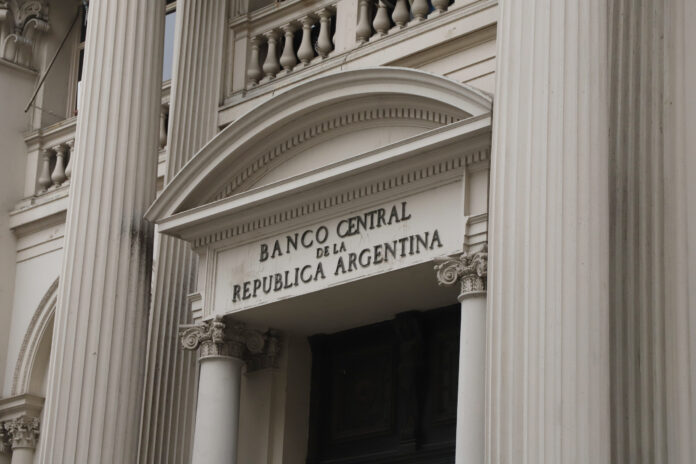Argentina’s central bank announced a series of measures on Monday aimed at increasing foreign reserves, including a dollar repurchase agreement of up to $2 billion with international banks.
The auction will take place on June 11, following a similar $1 billion operation in December.
The move comes as Argentina prepares for a review of its $20 billion loan agreement with the International Monetary Fund. Under the deal, the country must increase its net foreign reserves by $4.4 billion by the first review, without buying dollars locally. By December, those reserves were negative.
The measures are part of President Javier Milei’s economic plan, which includes lifting currency controls, floating the peso, and cleaning up the central bank’s balance sheet. The bank also said it will no longer set a benchmark interest rate, allowing the market to determine rates instead.
The previous policy rate was 29%.
In April, Argentina ended its crawling peg system, allowing the peso to trade between 1,000 and 1,400 per dollar, and removed capital controls that had limited dollar access. The central bank also recently issued a $1 billion bond to strengthen reserves further.
The bank stated that the changes shift to a monetary aggregates framework, removing the inflation-targeting model where it set rates. Instead, rates will now be determined by market conditions.




